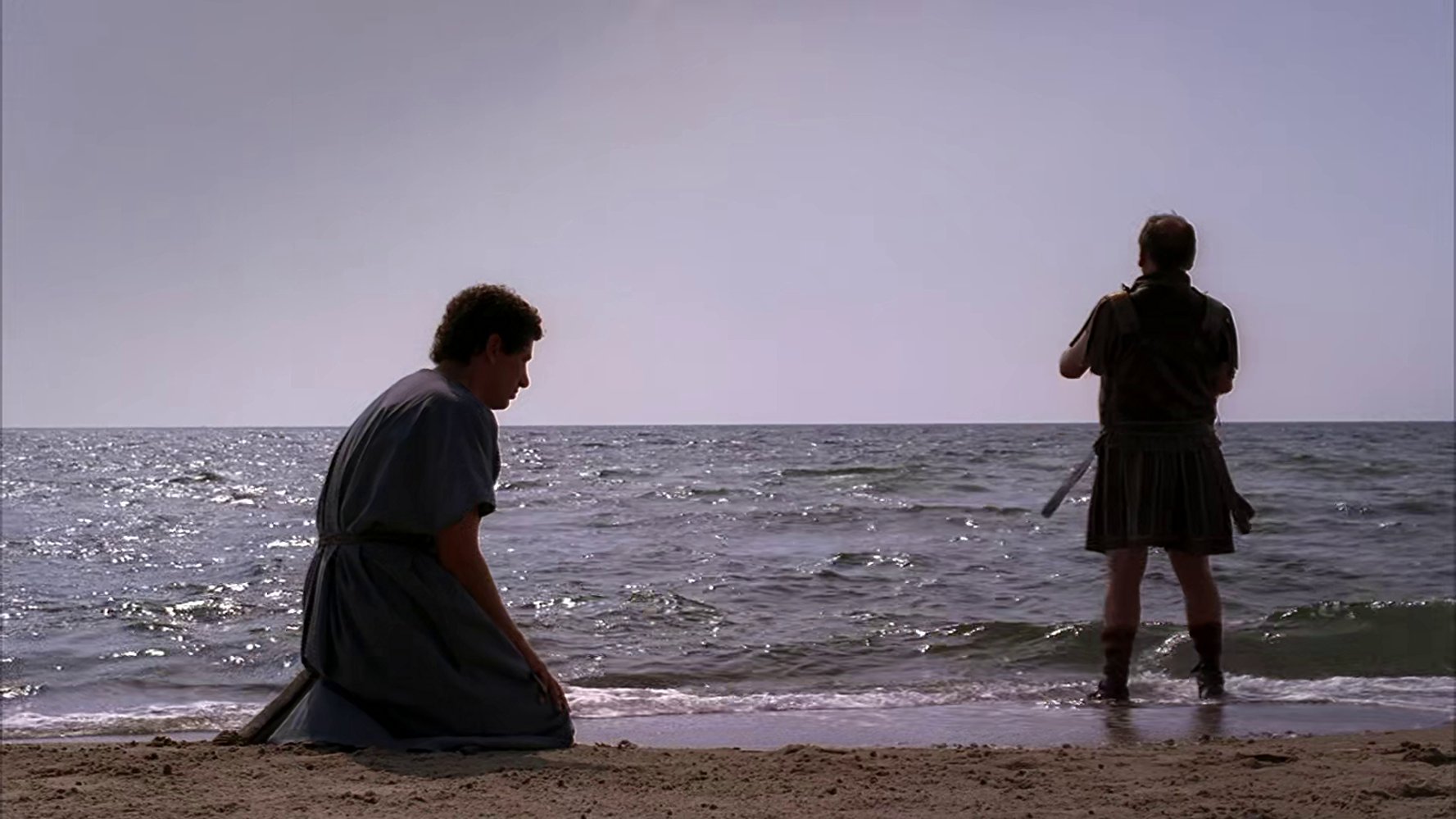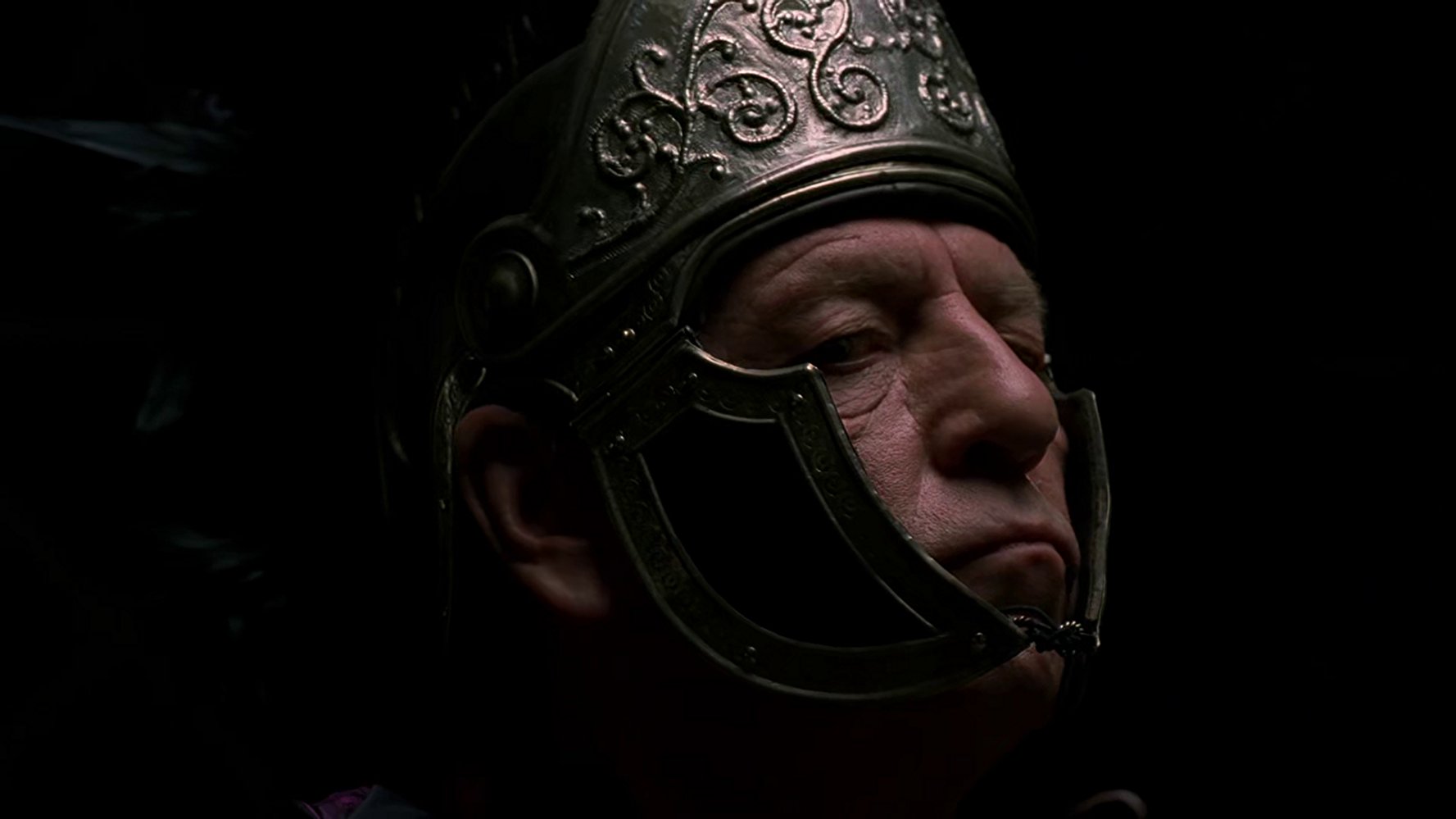Gnaeus Pompeius was born in 106 BCE, as a member of the plebian order. However, his father (a man by the same name) had risen to political and military prominence, and Pompey (the younger) served under his father in the army directly out of school. When his father died, Pompey maintained the same political affiliations, being aligned with Sulla, an...
Show more »
Gnaeus Pompeius was born in 106 BCE, as a member of the plebian order. However, his father (a man by the same name) had risen to political and military prominence, and Pompey (the younger) served under his father in the army directly out of school. When his father died, Pompey maintained the same political affiliations, being aligned with Sulla, and assisting him in the march on Rome. It was through this that Pompey made himself truly wealthy and powerful, as Sulla's supporters were rewarded well and repeatedly with the estates of Sulla's political enemies who were purged en masse on multiple occasions.By the time of Sulla's abdication in 81 BCE, Pompey had emerged as one of the two most powerful new politicians in Rome, the other being Marcus Licinius Crassus. The two disliked each other, but agreed to form a secret alliance in order to further one another's career ambitions. They brought a man of, as yet, no personal or family distinction into the alliance (earning it the cognomen First Triumvirate ) by the name of Gaius Julius Caesar.At the time, commanding an army was not typically a standing position, but would be granted by the senate in order to lead a specific campaign, and would be relinquished at the end of that campaign. However, as grain supplies bound for Rome were disrupted by piracy, Pompey was granted an army to put down the pirates in the Mediterranean. He enjoyed great success at this endeavor, but without any definitive way to ensure that all piracy had ended in the sea, Pompey was technically within his right to maintain command of his army.As Pompey gained this glory and popularity through his exploits, did Caesar with his amazing victories in Gaul, Crassus attempted to avoid the political death of anonymity. He led an army east to conquer the Parthians. He failed in this attempt, and was killed, along with most of his army. This left only Pompey and Caesar of the triumvirate, and with each passing year, Caesar's victories were setting him ever further ahead of Pompey in prestige and popularity.When Caesar's conquest of Gaul was completed in 51 BCE, Caesar was ordered by the Senate (partially under the coersion of Pompey) to disband his army and return to Rome. Caesar, rather than endorsing their implication that he was a criminal, marched his army into Italy and toward Rome with such speed that Pompey and the Senators were unable to draw forces to defend themselves and were forced to abandon Rome before Caesar arrived. Caesar became the defacto head of government within the city of Rome.Beginning in 49 BCE, Pompey led an army against Caesar in a devastating civil war that ranged from one end of the empire to the other. Ultimately, Pompey's forces were decisively defeated at the Battle of Pharsalus on August 9, 48 BCE. Caesar's army, starving and out-numbered, managed to out-flank Pompey's forces, scattering the cavalry, and driving the rest back into the hills. It was a staggering defeat for Pompey and the Optimates.Pompey sailed south to Egypt, which was still an independent Hellenistic Kingdom under the Potolemys (the dynasty founded by Ptolemy I, originally a general under Alexander the Great). Pompey hoped that in Egypt he could find support from the Ptolemys and would be able to raise another army. However, for all her wealth, Ptolemaic Egypt could not compete with the military prowess of Rome even under the best of surcumstances, and Pompey arrived in the midst of a dynastic dispute. Ptolemy XII had recently died, leaving behind a 17 year-old daughter, Cleopatra VII, and a 12 year-old son, Ptolemy XIV. Court eunuchs had attached themselves to young Ptolemy XIV, finding him more controllable than his older sister. Cleopatra had fled and gone into hiding for fear of assassination, but Ptolemy's court still feared Rome and hoped to win Rome's favor.Hearing news of Pompey's disasterous defeat at Pharsalus, the court-advisors sought to appeal to Caesar. They sent a retinue to meet Pompey at the port as he arrived, where they murdered him, cut off his head, and took it to back to the palace. The rest of the body was found by one of Pompey's slaves and an old, drunken former Roman soldier, now living in Alexandria. The two built a pyre, put the headless body on it, and performed the sacred rites to Pompey there on the beach.When Caesar arrived in pursuit, he was greeted warmly by the court, and presented with the head of Ptolemy as a gift. It did not have the desired effect. Caesar was furious. He had another pyre built and burned the head with all due ceremony. Caesar ultimately came down against young Ptolemy on behalf of Cleopatra. He had Ptolemy's advisors killed, and banished to the Lavant, where his enemy, King Mithridates of Pontus was more than willing to do Caesar's dirty work for him.
Show less «





